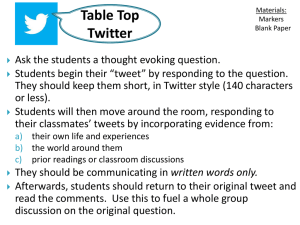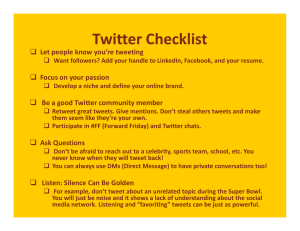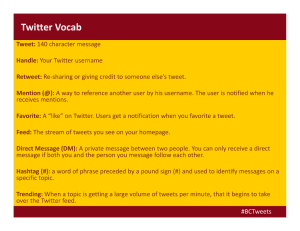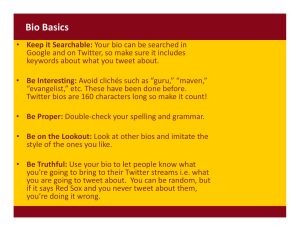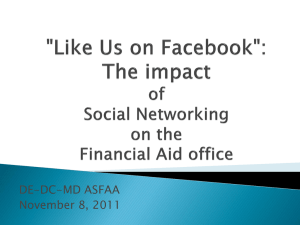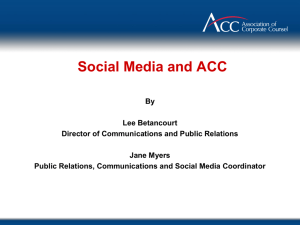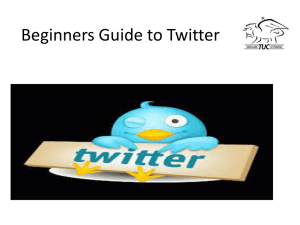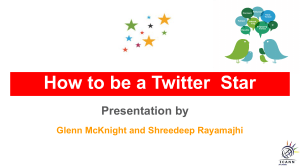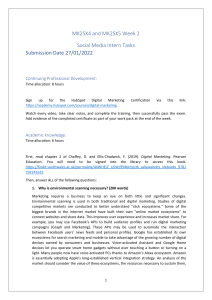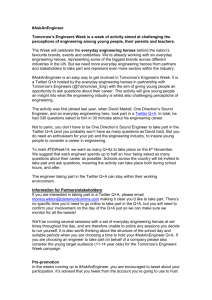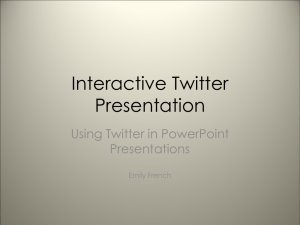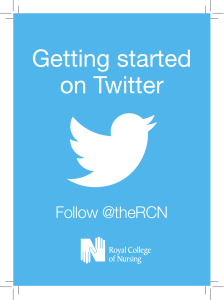ongoing media practices
advertisement
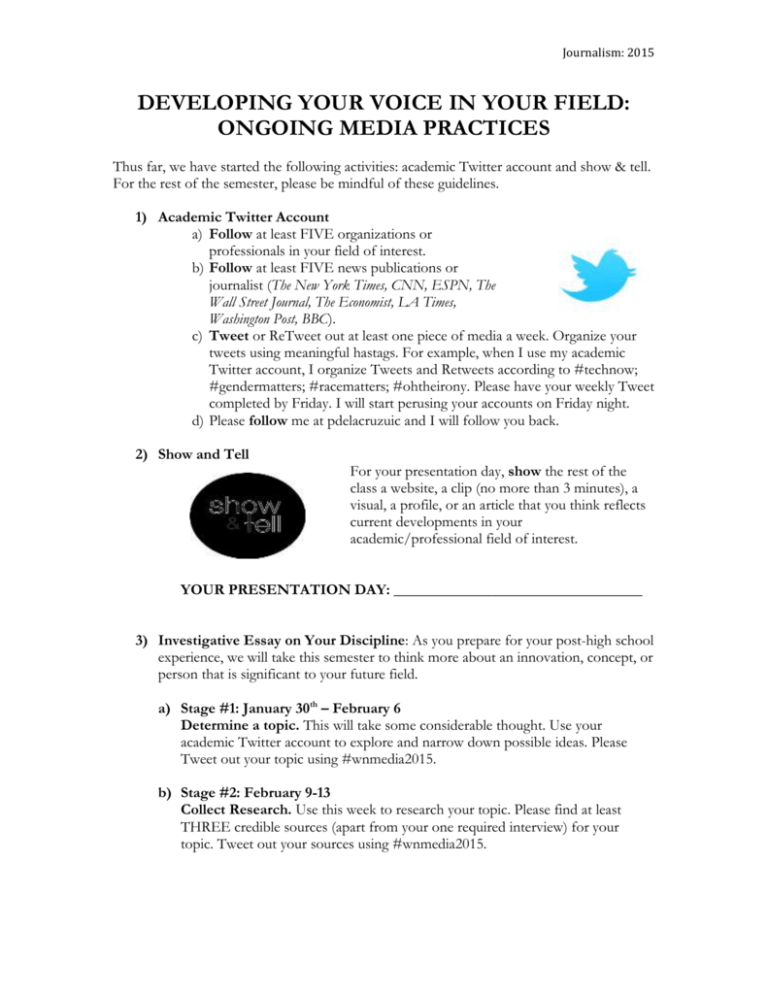
Journalism: 2015 DEVELOPING YOUR VOICE IN YOUR FIELD: ONGOING MEDIA PRACTICES Thus far, we have started the following activities: academic Twitter account and show & tell. For the rest of the semester, please be mindful of these guidelines. 1) Academic Twitter Account a) Follow at least FIVE organizations or professionals in your field of interest. b) Follow at least FIVE news publications or journalist (The New York Times, CNN, ESPN, The Wall Street Journal, The Economist, LA Times, Washington Post, BBC). c) Tweet or ReTweet out at least one piece of media a week. Organize your tweets using meaningful hastags. For example, when I use my academic Twitter account, I organize Tweets and Retweets according to #technow; #gendermatters; #racematters; #ohtheirony. Please have your weekly Tweet completed by Friday. I will start perusing your accounts on Friday night. d) Please follow me at pdelacruzuic and I will follow you back. 2) Show and Tell For your presentation day, show the rest of the class a website, a clip (no more than 3 minutes), a visual, a profile, or an article that you think reflects current developments in your academic/professional field of interest. YOUR PRESENTATION DAY: _________________________________ 3) Investigative Essay on Your Discipline: As you prepare for your post-high school experience, we will take this semester to think more about an innovation, concept, or person that is significant to your future field. a) Stage #1: January 30th – February 6 Determine a topic. This will take some considerable thought. Use your academic Twitter account to explore and narrow down possible ideas. Please Tweet out your topic using #wnmedia2015. b) Stage #2: February 9-13 Collect Research. Use this week to research your topic. Please find at least THREE credible sources (apart from your one required interview) for your topic. Tweet out your sources using #wnmedia2015. Journalism: 2015 c) Stage #3: February 16-20 Interview. Use this week to prepare and interview one person who can provide insight into your field. Unless the person is geographically very far from you, you should plan on meeting with this person. Please avoid interviewing a family member (unless you do not see them that often). This is an opportunity to make connections with other people in your field. d) Stage #4: February 23-27 Concept Map. Start creating a concept map based on all the information you have generated thus far. Your concept map should be on paper that is at least 11X8 since you will be presenting this in-class. You will turn in the concept map with your final product. e) Stage #5: March 2-6 First Draft Writing & Revising. Use this week to create your first draft. This investigative piece should reflect everything we (will have) discussed about investigative essay writing. Please upload your first draft to turnitin.com by March 6th (Friday at 11:59). f) Stage #6: March 23-27 Final Revisions & Complete Product (Written and Concept Map). Using the comments you got back, revise and upload your article to the class Google Classroom (creating a visible Google Doc). This step will be explained more in class. You will also turn in the concept map in class in order to present it to the class upon returning from spring break. Additional Notes Concerning Assignments: - FINAL WRITING GUIDELINES: Same rubric guidelines: Organization, Accuracy, Fluency 600-800 words. Use of at least one external source Use of interview source.
